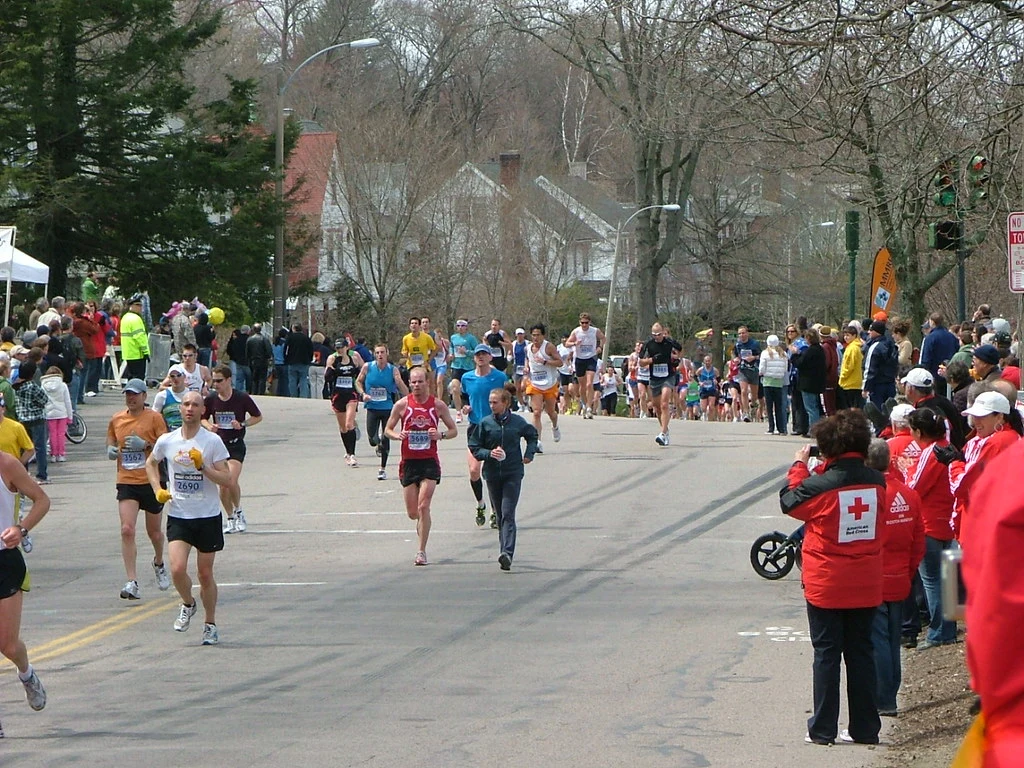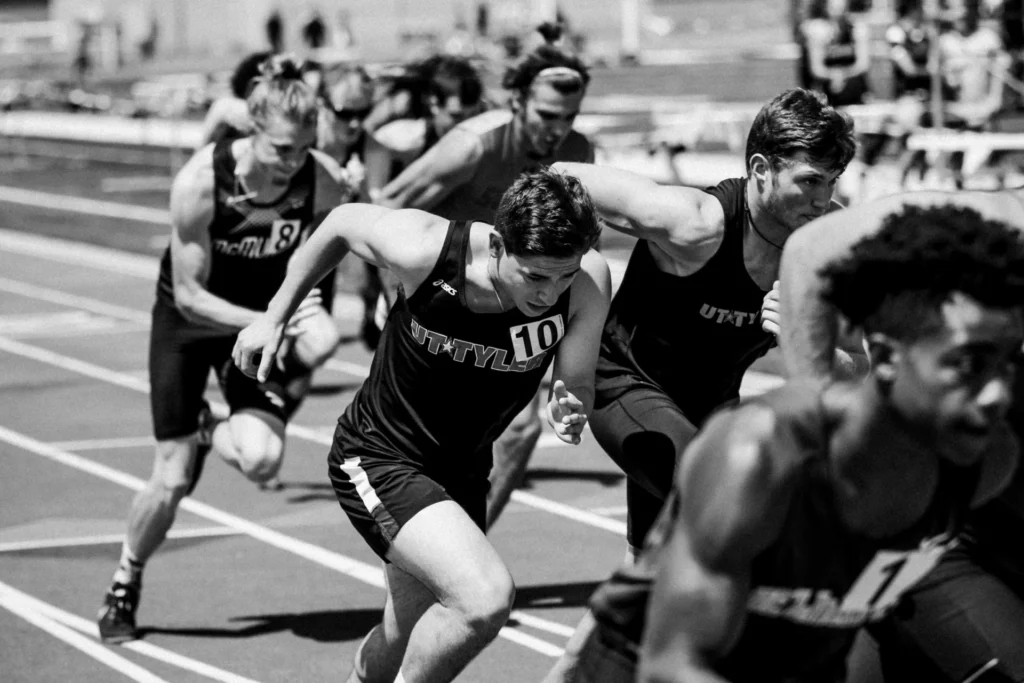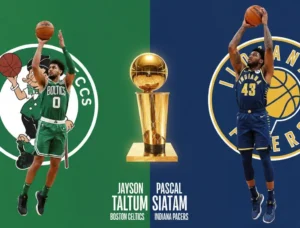The Boston Marathon’s legacy stretches far beyond a mere race, it stands as a global symbol of endurance, resilience, and achievement. Established in 1897, it has transformed from a modest 15-runner event into one of the world’s most celebrated marathons. Below, we’ll explore the Boston Marathon history, its journey through key historical milestones, course characteristics, and its remarkable cultural impact.
History of the Boston Marathon
While the invention of running as a sport goes back thousands of years, it has helped carry this tradition into modern times, showing the power of endurance and achievement. The evolution of the Boston Marathon was inspired by the 1896 Olympic marathon held in Athens, Greece.
The Boston Athletic Association (BAA) established the first Boston Marathon on April 19, 1897, with only 15 participants. John J. McDermott, an Irish-born American, won this inaugural race with a time of 2:55:10 over the original course distance of 24.5 miles (39.4 km).
This initial event set the foundation for what would become the world’s oldest annual marathon, growing over the years into a globally respected race.
Boston Marathon Historical Milestones
Each decade has brought significant developments and memorable moments to its history, making it an icon of endurance sports. Below are some of the key milestones that define its legacy:
Inaugural Race (1897):
- Participants: 15
- Finishers: 10
- Winning Time: John J. McDermott completed the race in 2:55:10.
- Distance: Originally 24.5 miles (39.4 km).
Course Length Standardization (1924):
- The course was adjusted to 26.2 miles (42.195 km) to align with international standards, matching the marathon distance set in the 1908 London Olympics.
Participation Growth:
- 1975: Only 28 women completed the race, reflecting early gender barriers in marathon running.
- Recent Years: Over 11,000 female finishers, showing the growth in female participation.
- Total Finishers: Increased from approximately 5,000 in the 1980s, to about 10,000 in the 1990s, around 18,000 in the 2000s, and over 25,000 in recent years.
Centennial Event (1996):
- The marathon’s 100th anniversary race drew a record 38,708 entrants, with 35,868 finishers, making it the largest marathon event of its time.
Notable Events:
- 2013: The tragic bombing near the finish line led to three fatalities and over 260 injuries, giving rise to the “Boston Strong” movement.
- 2020: Due to the COVID-19 pandemic, the marathon was canceled for the first time, transforming into a virtual event for runners worldwide.
These milestones demonstrate the Boston Marathon’s adaptability, resilience, and cultural significance over more than a century.
Boston Marathon Winners Through History
Throughout its history, it has crowned champions who exemplify speed, endurance, and grit. Here’s a look at some notable winners who have left their mark on the race’s legacy:
| Year | Winner | Country | Notable Achievement |
| 1897 | John J. McDermott | USA | First-ever winner; 2:55:10 time at 24.5 miles |
| 1975 | Bill Rodgers | USA | Won 4 times, inspiring a running boom |
| 1983 | Joan Benoit Samuelson | USA | Paved the way for female marathoners |
| 2014 | Meb Keflezighi | USA | First American male victor since 1983 |
| 2023 | Evans Chebet | Kenya | Won back-to-back, showcasing Kenyan prowess |
What is Older than the Boston Marathon?
While it holds the title of the world’s oldest annual marathon, a few other events predate it:
| Event | Year Established | Country |
| The Derby (Horse Race) | 1875 | USA |
| FA Cup (Football) | 1871 | England |
| Henley Royal Regatta (Rowing) | 1839 | England |
| Oxford-Cambridge Boat Race | 1829 | England |
The Oldest Marathon in the World
The Boston Marathon, established in 1897, proudly holds the title of the world’s oldest annual marathon. Its uninterrupted status (except for the 2020 pandemic) sets it apart as a benchmark for marathons globally.
| Attribute | Boston Marathon |
| First Held | 1897 |
| Annual Status | Every year (except 2020) |
| World Record Eligible? | No, due to elevation changes |
| Elevation Drop | Approximately 140 meters |

Importance of the Boston Marathon
The Boston Marathon traditions have significance well beyond athletics, embodying ideals of resilience, competition, and unity. It’s a testament to the human spirit, inspiring millions with its cultural and symbolic importance.
- Cultural Tradition: Held on Patriots’ Day, it honors American history.
- Global Inspiration: Athletes train to meet qualifying standards, making Boston a prestigious goal.
- Resilience Symbol: “Boston Strong” emerged from the city’s response to the 2013 bombing, underscoring the community’s strength.
Famous Moments in Boston Marathon History
Certain moments have defined its place in history:
- 1897: The first race set a legacy in motion with just 15 participants.
- 1966: Bobbi Gibb’s unofficial finish was a landmark for women’s rights in sports.
- 2013: The bombing incident marked a tragic yet unifying moment for the city and global community.
- 2014: Meb Keflezighi’s win brought pride to American fans.
These events underscore the Boston Marathon’s unique place in sporting history and social progress.
How Competitive is the Boston Marathon?
The Boston Marathon’s stringent qualifying times attract elite runners:
- Qualifying Standards: Only those meeting age-based time criteria can enter, making it highly competitive.
- Global Participation: Runners from across the globe vie for entry, often treating qualification as a lifetime goal.
- High Stakes: The hilly course and tough competition make Boston an especially challenging marathon.
Boston Marathon and American Culture
The Boston Marathon history holds a special place in American culture. Every year, around 500,000 spectators gather, making it New England’s most-watched sporting event. From “Boston Strong” to its Patriots’ Day celebration, the marathon represents resilience, unity, and a deep-rooted sense of community.
Boston Marathon and Global Running Events
As a founding member of the World Marathon Majors, the Boston Marathon sets a standard for international races. It has inspired marathons in cities like New York, Chicago, and Berlin. With its reputation, Boston continues to be the “gold standard” that marathon organizers and runners around the world admire.
Why is the Boston Marathon so Difficult?
The course’s unique characteristics add to the challenge:
- Point-to-Point Route: The Boston Marathon’s 140-meter elevation drop disqualifies it from world record eligibility but makes it challenging due to constant terrain changes.
- Heartbreak Hill: Located at mile 20, this uphill stretch tests even seasoned runners.
- Variable Weather: April weather in Boston is notoriously unpredictable, often impacting runners’ performances.
These factors contribute to Boston’s reputation as a rigorous, “must-run” race for serious athletes.
Conclusion
The Boston Marathon is a race like no other, embodying both athletic achievement and cultural heritage. From its early days in 1897 to its role as a beacon of resilience in the wake of the 2013 bombing, the marathon is a cherished event that inspires runners and spectators around the world.
FAQs
Why is the Boston Marathon a big deal?
As the world’s oldest annual marathon, it’s known for its history, stringent entry standards, and its role in bringing people together.
Why the Boston Marathon is important?
It represents resilience and unity, particularly with the 2013 “Boston Strong” movement, and honors American traditions with its Patriots’ Day race.
Is it hard to qualify for the Boston Marathon?
Yes, the Boston Marathon is challenging to qualify for, with age-based time requirements set for entry, making it a prestigious goal.
Is Boston a tough marathon?
The hilly terrain, weather, and the famous Heartbreak Hill make it one of the more challenging major marathons.
How much does it cost to run the Boston Marathon?
Entry fees for the Boston Marathon are generally around $200 for U.S. residents and slightly higher for international runners.
What is a harder marathon NYC or Boston?
Both marathons are challenging, but Boston is generally considered tougher due to its hilly course and qualifying standards. NYC’s course has hills too, but Boston’s Heartbreak Hill is notoriously difficult.












